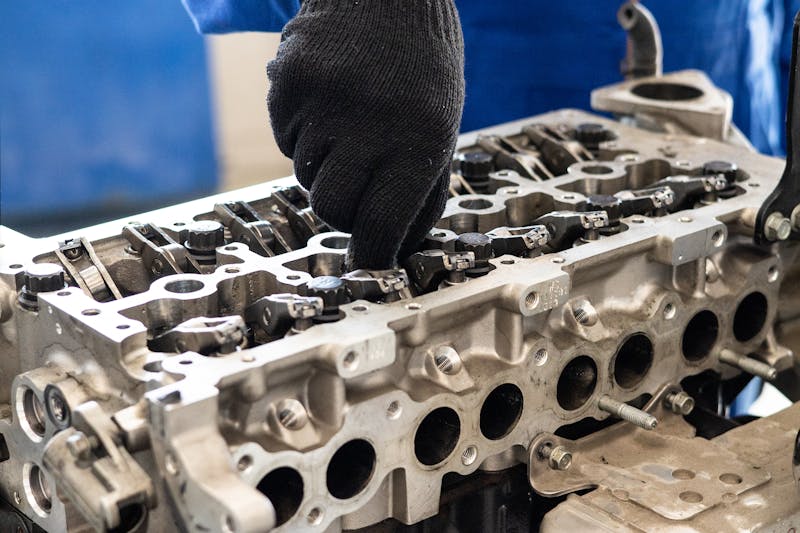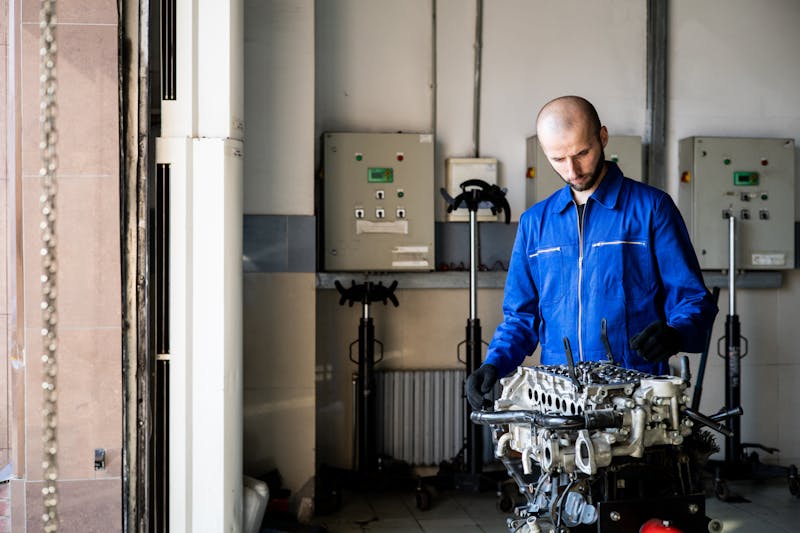The Economic and Environmental Benefits of Cylinder Head Reconditioning

If you find yourself inquiring about ways to economize your auto repair budget or searching for a greener automotive solution, look no further than your vehicle’s engine. Specifically ponder upon your cylinder head. What if instead of a costly replacement, you opt for a reconditioning? What if I told you this simple shift doesn't only save you money, but significantly reduces environmental impact? In today's blog, we'll analyse the economical and environmental potential of cylinder head reconditioning.
Engines, particularly cylinder heads, are intricate components with a significant impact on a vehicle's efficiency and longevity. In essence, a well-maintained cylinder head could potentially save thousands over the life of your vehicle. Moreover, opting for reconditioning instead of replacement ushers in an era of eco-friendly vehicle maintenance without compromising on performance.
Can we create a balance between personal finances, performance efficiency and our shared responsibility for environmental stewardship? Let's delve into the rewarding world of Cylinder Head Reconditioning to find out!
Understanding Cylinder Head Reconditioning
To appreciate the value of Cylinder Head Reconditioning, we must first comprehend its function in vehicle's dynamics. Simplified, a cylinder head caps the engine’s cylinders, housing vital components like valves and spark plugs affecting engine performance, fuel economy and emissions.
Reconditioning rather than replacing a cylinder head involves a thorough cleaning, inspection, repair, and often a complete rebuild. This process extends the part's lifespan, potentially forestalling more significant, costlier issues down the line.
By reconditioning the cylinder head, we're promoting a culture of recycling and repair, versus the more wasteful replace-and-dispose ethos—a necessary shift toward an environmental sustainability.
Prosperous Pros of Cylinder Head Reconditioning
Arguably, the most enticing advantage of cylinder head reconditioning is the substantial cost savings. With reconditioning, you're merely restoring an existing part rather than purchasing a new, expensive replacement.
Reconditioning is also incredibly beneficial for older, vintage, or rare models, where replacement parts could be scarce, or alarmingly expensive. Thus, preserving these components can reduce the tendency toward unnecessary waste.
Finally, reconditioned heads may result in efficiency improvements. Not only does this translate into better fuel consumption, but it could also lessen CO2 emissions—a win for both your wallet and the environment.

The Tangible Trade-offs
As with any choice, it's essential to weigh any potential drawbacks. Reconditioning a cylinder head may demand a higher initial labour cost. It's a labour-intensive process involving skilled mechanics—an especially critical factor if time constraints are a consideration.
If the cylinder head has extensive damage, reconditioning might be less viable. In such rare and extreme cases, replacement may be the only option.
However, the balance often tips towards reconditioning, given its long-term cost savings and environmental benefits.
Greening the Automotive Industry
Reconditioning's environmental positives cannot be overstated. When we recondition, we reduce raw material consumption, minimise waste, and decrease the energy required compared with manufacturing new parts.
At the same time, we're slowly changing the throwaway culture that negatively impacts our environment. Cylinder head reconditioning offers the automotive industry a chance to redeem itself and promote sustainability.
Reconditioning for a Sustainable Future
Cylinder head reconditioning is a beacon of a broader societal shift towards a circular economy. It demonstrates how we can re-engineer traditional practices towards a sustainable and economically beneficial future.
This process provides a model for how we can re-envision the maintenance and life-cycle of our vehicles balancing performance, economy, and environmental responsibility.
Conclusion: Balancing Economics and Ecology
In our search for sustainable solutions, we have unveiled an avenue merging the best of both worlds financial prudence and environmental sustainability. Cylinder head reconditioning presents not just a path to economize and green your auto repair, but a model for a more sustainable future at large.
While it may require a slight investment in time and initial labour costs, the long-term savings both economically and ecologically are undeniable.
The principles of pragmatism, permeability and preservation integral to cylinder head reconditioning act as guiding beacons lighting the pathway towards a more sustainable, conscientious automotive industry and a green futurism we all can subscribe to. Finding common grounds between economy and ecology not only seems plausible but promisingly fruitful. Isn't it time we refuel our conventional mindsets and recondition our perspectives? Rediscover the potential in the old, reimagine the criteria for the new, and together, let's drive towards a better future!
